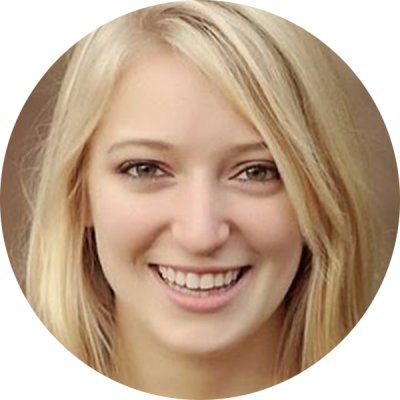
Helen Clark
I conducted this research in the laboratory of Dr. Sergi Regot. In the Regot Lab, we use biosensors and live-cell imaging to study a wide range of complex biological processes, from embryo development to immune signaling. My recent work seeks to understand innate immunity in the context of the epithelial monolayer, the outermost layer of cells that is often in close proximity to microbes. Epithelial tissues must quantify these microbes in order to maintain a balanced immune state.
To understand how this quantification is achieved, we designed a screen of microbe-related signals and measured the nuclear translocation and transcriptional activation of the master immune regulator —NF-κB — in thousands of single cells. We found that as a population, epithelial cells respond to bacterial molecules by activating fractions of cells in an all-or-nothing (i.e., digital) manner. An epigenetic switch that regulates receptor expression maintains the responding cell fraction. The fraction of responding cells can be increased by prolonged innate immune signaling via cytokines that trigger oscillatory NF-κB activity. Epigenetic variegation of receptor expression in single cells allows for long-term, quantitative flexibility in the upper limit of response in the population. This flexible variability at the single-cell level could contribute to the development of diseases that involve chronic inflammatory states tissues.
Questions & Answers
Why did you choose Johns Hopkins for your work?
I chose Hopkins because of the intellectual support system. My projects took many unexpected detours into niche research topics. Hopkins is truly a place where one can walk down the hall and chat with experts who are world leaders in their field. I also chose Hopkins because the BCMB graduate program has a long history of producing excellent scientists, and, during my interview visit, I fell in love with Baltimore.
What does receiving this award mean to you personally and professionally? Do you have any connection with the particular award you received?
I feel honored, humbled and grateful to the many people who support my research.
What contributed to your project’s success?
Without a doubt, the excellent and tireless mentorship from my adviser Sergi. In five years of working with him, he has yet to decline a request to chat. I would also like to thank my lab mates and graduate school friends, who inspire me to work hard both at the bench and in the Baltimore community.
What thoughts do you have about Young Investigators’ Day itself, as a celebration of the roles students and fellows play in research at Johns Hopkins?
I think it is wonderful to dedicate a day to celebrate the research of students and fellows at Hopkins. In graduate school, my research path sometimes feels more like a labyrinth, and it takes unrelenting intrinsic motivation to continue eliminating dead ends. In these times, extrinsic motivation in the form of an award is extremely helpful.
What has been your best/most memorable experience while at Johns Hopkins?
It is difficult to pick one moment. There were several times when a discussion with my adviser began with, “So, I had this idea that might be crazy …” The fail rate of those experiments was probably around 98%, but when they worked, it was a high of indescribable bliss. There was one I remember fondly — where we tried to engineer a light-based, intercellular signaling system, using optogenetic tools. Of course, this idea ended up in the fail category, but it was fun to try.
What are your plans over the next year or so?
I plan to graduate in the fall, and I am actively searching for a biotech industry job — preferably in the Bay area.
Tell us something interesting about yourself.
I am very fortunate to have an eccentric family that invested heavily in my science education, from an early age. My sisters and I grew up observing the development of frogs, butterflies — even bobwhite quail — in our own kitchen. Now, we are all pursuing science careers: One is on the faculty job market in astrophysics and the other is working towards a neuroscience Ph.D. It is rare to have lifelong access to such an unconditional support system.